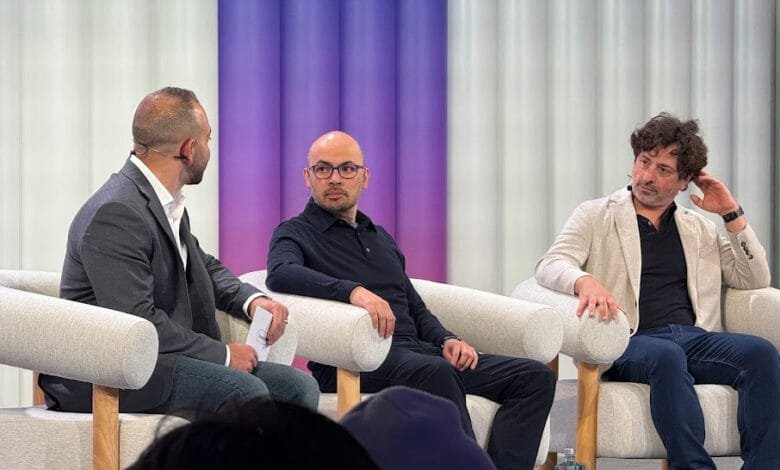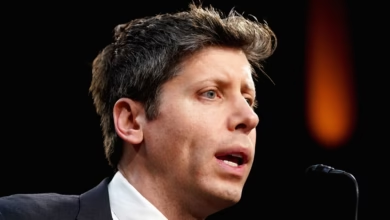Sergey Brin’s Surprise Google I/O Reveal: AGI Is Coming

▼ Summary
– Google co-founder Sergey Brin declared Google’s intent to win the AGI race, stating Gemini will be the first AGI, marking a shift from the company’s previous cautious stance.
– Brin and DeepMind CEO Demis Hassabis disagreed on AGI timelines, with Brin predicting it before 2030 and Hassabis favoring a more cautious, scientifically rigorous approach.
– Hassabis emphasized the need for breakthroughs in reasoning and consistency for true AGI, while Brin focused on competitive positioning and algorithmic advancements.
– Google highlighted multimodal AI, particularly vision capabilities, as a strategic advantage for Gemini, with applications in smart glasses and robotics.
– The philosophical tension between Brin’s pragmatic engineering approach and Hassabis’s scientific rigor reflects Google’s dual strategy of ambition and caution in the AGI race.
Google’s AGI Ambitions Take Center Stage as Brin Makes Bold Prediction
The race for artificial general intelligence (AGI) took an unexpected turn at Google I/O when co-founder Sergey Brin made a rare public appearance, declaring that Gemini will be the first true AGI. His statement, delivered alongside DeepMind CEO Demis Hassabis, revealed a fascinating tension between Google’s competitive drive and its scientific caution—a dynamic that could shape the future of AI.
Brin’s confidence was striking. While most tech leaders hedge their AGI claims with qualifiers, he stated plainly: “We fully intend that Gemini will be the very first AGI.” This marks a clear departure from Google’s traditionally measured approach, positioning the company as a direct challenger to rivals like OpenAI and Meta.
Yet Hassabis offered a more tempered perspective, emphasizing the need for rigorous definitions. For him, AGI isn’t just about outperforming humans in narrow tasks—it’s about matching the versatility of the human brain. “Our systems today aren’t consistent enough to be considered fully general,” he noted, highlighting gaps in reasoning and creativity that still need solving.
The AGI Timeline Debate: Before or After 2030?
When asked whether AGI would arrive before or after 2030, Brin didn’t hesitate: “Before.” Hassabis, smiling, countered with “Just after,” prompting Brin to joke that his colleague was “sandbagging.” This brief exchange underscored a deeper divide—Brin’s focus on speed and scale versus Hassabis’s insistence on scientific precision.
Hassabis elaborated that true AGI would require breakthroughs beyond today’s models. “For something to be called AGI, it should take experts months to find flaws, not minutes,” he said, pointing to weaknesses in current AI’s “world models.” Both agreed, however, that algorithmic innovation—not just raw computing power—will be key to progress.
Google’s Multimodal Edge: Why Vision Matters
One area of alignment was the importance of multimodal AI, particularly vision. Unlike competitors fixated on text and voice, Google is betting heavily on camera-first AI, evident in its smart glasses demo. Hassabis called vision-enabled assistants the “killer app” for wearables, suggesting that Gemini’s early multimodal design gives it a strategic advantage.
Balancing Ambition with Responsibility
Both leaders acknowledged the risks of unchecked AI development. Hassabis highlighted Google’s SynthID watermarking as a safeguard against misuse, while Brin framed AGI as an inevitability worth pursuing responsibly. Their differing philosophies—Brin’s engineer pragmatism versus Hassabis’s neuroscientist caution—reflect Google’s dual strategy: racing ahead while ensuring safety.
A New Phase in the AGI Race
Brin’s declaration signals a bold shift for Google. By openly targeting AGI, the company is challenging OpenAI’s narrative dominance and Meta’s open-source push. With Brin back in a hands-on role and Hassabis steering DeepMind’s research, Google appears to be blending competitive urgency with scientific rigor—a combination that could redefine the AI landscape.
Whether Gemini achieves AGI first remains uncertain, but one thing is clear: Google is no longer playing it safe. The question now is whether its rivals will accelerate their own timelines—or if Hassabis’s caution proves the wiser path.
(Source: VentureBeat)






